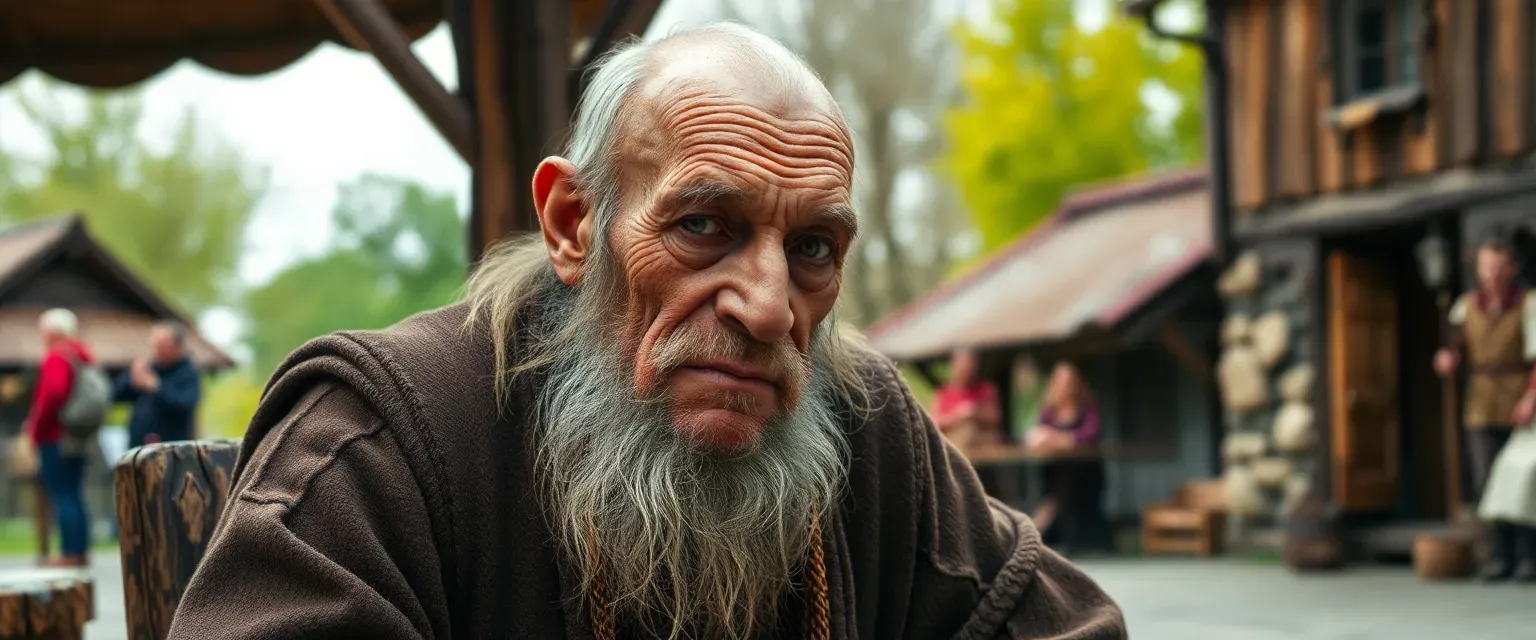Guslar, a relic of the ancient Slavic pagan tribes, is a man so old that the villagers whisper he must be over a century old. His age is a mystery, shrouded in the mists of time, as no one recalls a time when Guslar was not present in their village. His face, a map of wrinkles, tells tales of countless winters and summers, each line a story of survival and endurance. Mute from the ravages of age, Guslar has lost his teeth, leaving his mouth sunken and his cheeks hollow. Despite these hardships, he manages to make his way to the village square each day, where he sits quietly, observing the world with eyes that have seen too much to be easily startled or impressed.
Guslar's presence in the village is a paradox. He is a non-aligned character, peaceful and kind, yet the villagers treat him with a mix of jest and neglect. They see him as a local joke, someone to laugh at rather than with. Yet, there is an unspoken respect that prevents them from outright cruelty. Guslar, in his silence, seems to accept this treatment with a stoic resignation, perhaps understanding more than he lets on about the human condition.
His daily pilgrimage to the square is not just a habit but a silent testament to his will to live and connect, even if only through the silent language of presence. Guslar's desire is simple: to be acknowledged, to feel a part of the community that has grown around him over the decades. Yet, his age and condition make it difficult for him to engage actively with the villagers, who are too caught up in their own lives to notice the old man's silent pleas for connection.
Despite this, Guslar finds a way to influence the village subtly. His mere presence in the square acts as a reminder of the past, a living connection to the traditions and stories of their ancestors. Over time, some villagers begin to appreciate this silent wisdom, and though they may not openly acknowledge it, Guslar's quiet endurance begins to change their perceptions, if only slightly.
The conflicts in Guslar's life are internal and external. Internally, he battles the loneliness and the fading of his physical capabilities. Externally, he faces the indifference and occasional mockery of the villagers. Yet, through his silent persistence, Guslar manages to weave a thread of continuity and memory into the fabric of the village, ensuring that the old ways are not entirely forgotten. His story ends not with a grand gesture but with the quiet realization that even in silence, one can leave a lasting impact.
